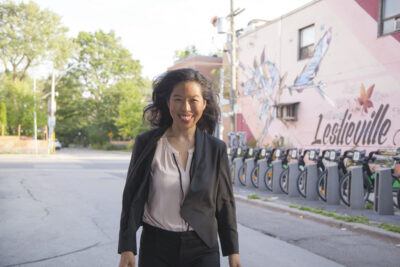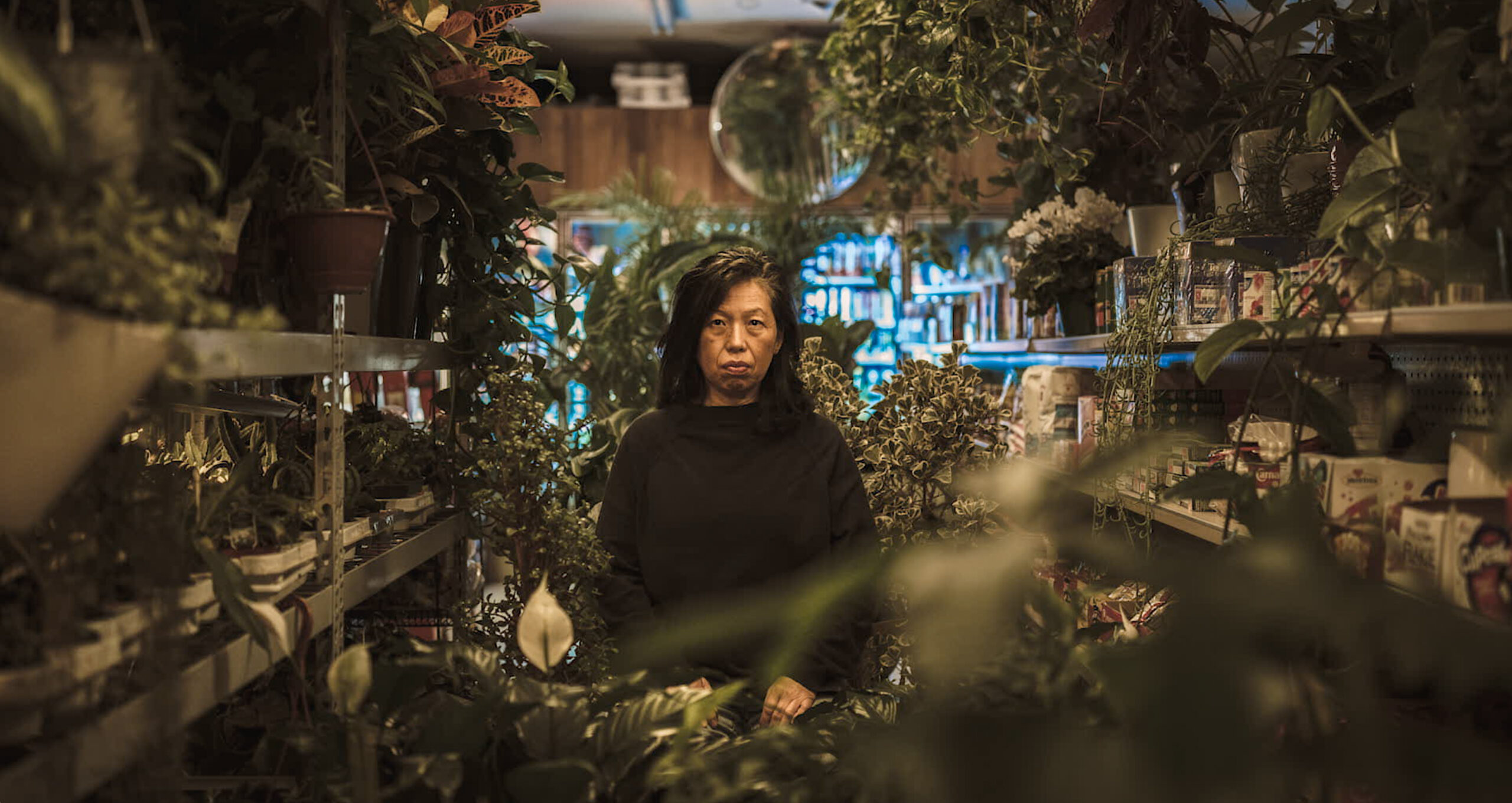Min Sook Lee hasn’t always seen herself as an artist. The award-winning director has a roster of more than a dozen short and feature-length documentaries under her belt, but she didn’t study filmmaking or set out to be a creative. Instead, for her, art was a natural extension of the political organizing she’s been immersed in for most of her life.
“For myself, artmaking has always been instrumental for impacting social change in a material way,” Lee says. “I’ve always understood art not just as something that is a mirror to reflect yourself, but as a hammer to shape the world that you want to live in.”
As a teenager, Lee was part of a group called Youth Against Apartheid, as well as a number of community-based groups organized by queer, working-class women of colour. She describes her time as a news director at the TMU campus radio station CKLN as particularly formative.
“We would call it revolutionary radical radio. We were a bunch of committed lefties who used the radio to share music and conversations and news that you can use from the left of the dial,” she says. Whether her guests were talking about the Irish freedom struggle, or police brutality or solidarity of Indigenous peoples, it was, for her, “the year of listening dangerously.”
About five years later, in 2003, Lee directed her first documentary—El Contrado, following migrant farm workers from Mexico to Leamington, Ontario. She made that film with a very specific agenda and audience in mind. She tells us this hasn’t changed throughout her years as a filmmaker—whether she’s making films about Jewish spies in WWII, toxic chemicals in baby products, or queer police officers. But while she made El Contrado with the intention of swaying the “default” white, middle-class viewer, her latest project speaks directly to diasporic communities, an audience that is much closer to her heart.
There Are No Words is Lee’s most personal film yet, but is still a deeply political work of art. The documentary follows Lee as she searches for memories of her mother, who died by suicide when Lee was 12. But in revisiting the people and places of her childhood, both in Toronto and Hwasun, South Korea, Lee dives even deeper, unearthing layers of violence in her family and generational trauma rooted in the social and political issues of her parents’ time.
“I intercut and wove my story and my thoughts about what happened to my mother with archival footage of Korea during the times my parents grew up and lived in,” Lee says. “For me, that was a very important decision—to intercut between the personal and the public.”
Lee’s parents were born in the 1930s and lived through Japan’s colonization of Korea, the forced division of the country, a civil war in which millions died, and the authoritarian regime that followed. Lee’s father was a member of the Korean Counterintelligence Corporation, and was trained to interrogate and terrorize suspected communists. But that training didn’t stay out in the field. It was carried into Lee’s home, where domestic abuse and violence were a common reality—but were never spoken about.
“If you grow up with domestic abuse, if you grow up with suicide, and you grow up with violence in your own family, and also a family that doesn’t speak about these stories…you have a lot of questions,” Lee says. “For myself, making the film There Are No Words was very much an intentional breaking of silences, a rupturing of the pretending that these things don’t happen.”
The film first premiered at TIFF earlier this fall, and just won the award for Best Documentary at the Reel Asian Film Festival. Lee has noticed that the film seems to resonate deeply with diasporic audiences, who see themselves in her story.
“When I’ve talked to people who have seen the film, who have some similar experiences, there is this kind of shock of recognition that they share with me,” Lee says. “It allows, I hope, a space for holding some of that pain and grief. But also suggests that there are ways in which we can heal from that.”

In addition to her work as a filmmaker, Lee is an Associate Professor at OCAD University, where she teaches Art & Social Change and Integrated Media. For her, working as a professor is an extension of her interest in helping people recognize the complexities of our humanity.
“I enjoy talking to younger people about the work that they make, and then speaking to them about trusting their voice,” she says. “You can’t educate or teach someone to be an artist. They simply are. I think that we are all artists.”
Lee has won numerous awards for her films, and has been recognized by the Canadian Association of Journalists, the Canadian Screen Awards, Hot Docs, Cinema Politica, and the Mayworks Festival of Labour and the Arts—Lee’s former employer. She ran as the NDP candidate in the Toronto—Danforth riding during the 2019 federal election, and was recently named as one of 52 women who shaped the city by the Museum of Toronto. But for Lee, what means the most are the quietly impactful moments that remind her of her love for filmmaking.
“There are moments of filming in particular that were really, really powerful, in which certain things happened, and I couldn’t believe they were happening in front of me,” she says. One of these moments occurred while shooting her first film, El Contrado. One of the farm workers, Teodoro, invited her to shoot something early in the morning, and didn’t tell her what it was.
“It was that silent time in the day where there’s no activity, and it’s almost like this dream space… he’s walking down the street, and he goes to a pay phone and calls home. He wishes his son, Miguel, happy birthday. In Mexico, you greet someone’s birthday by waking them up with a birthday song. So then Abel and Teodoro squeezed into this payphone booth, and Abel starts playing his guitar, and Teodoro and Abel start singing happy birthday. And I was on the side, just in disbelief that I could be privy to this very special moment…I was very much in that moment, but I was also feeling like I was almost outside of life,” she says. “I was astounded that I could be there.”
These are the moments Lee holds on to. When she’s in the right place at the right time, with her camera and people she trusts, capturing a moment that so poignantly reflects the stories she wants to tell.
“My filmmaking allows me access to be in spaces with people during times often of emotional intensity… and I have the privilege of filming. That’s incredible trust.”
There Are No Words screens at Reel Asian Film Festival on November 13.



 Follow Us On Instagram
Follow Us On Instagram
